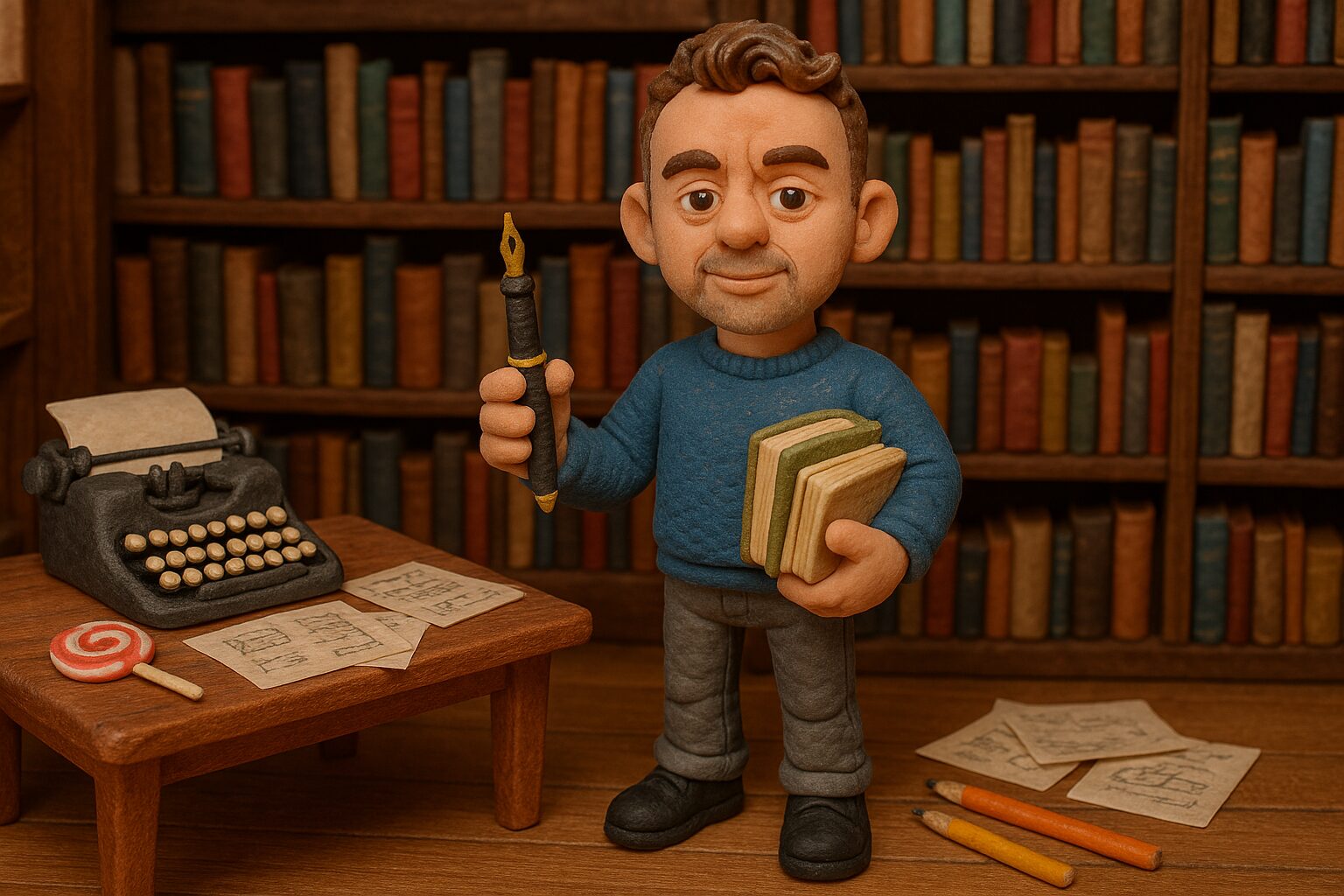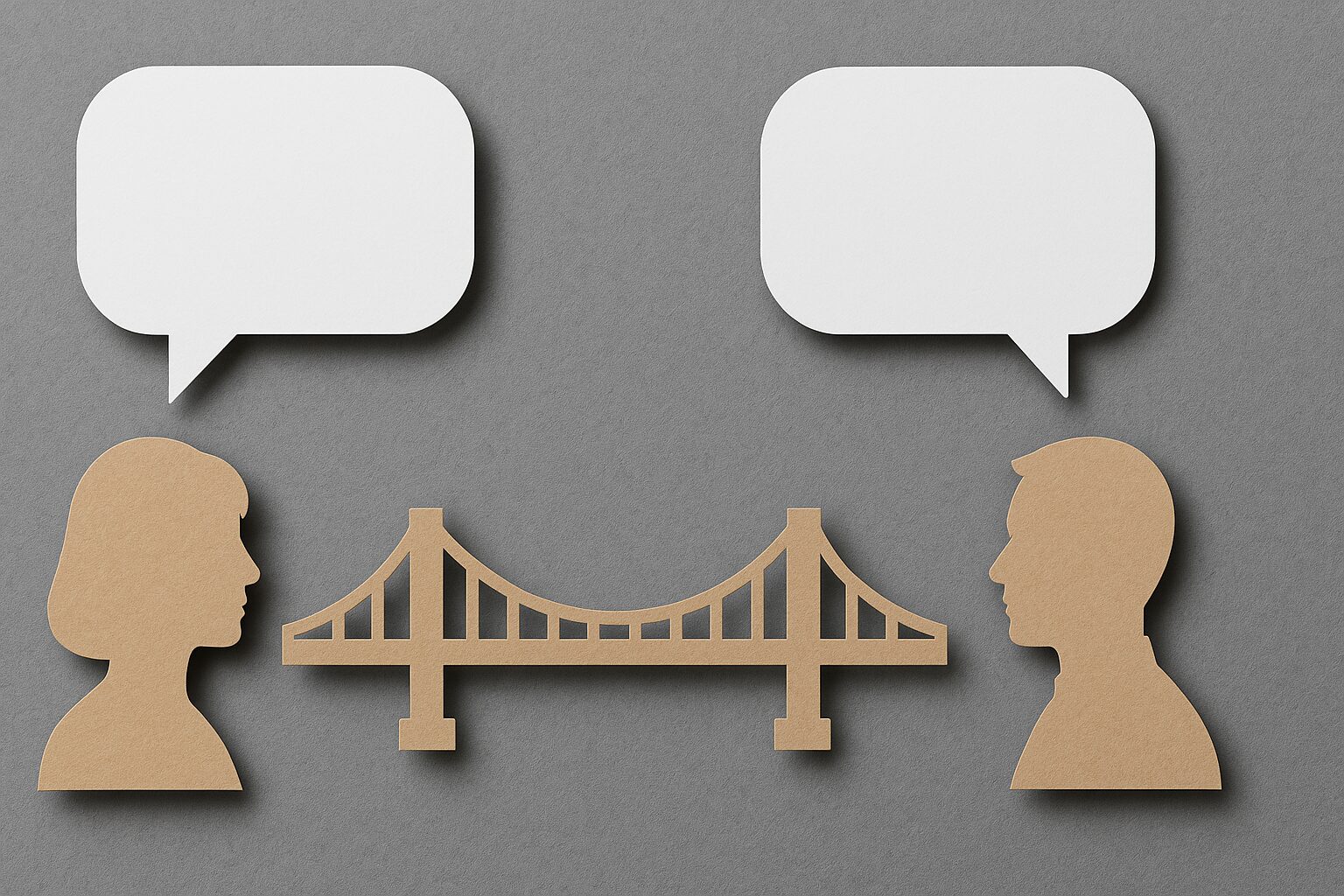Have you heard? Editors are no longer necessary. You can do everything in AI. And save yourself a bunch of money.
I find myself regularly defending the continued relevance of my role as a freelance editor and marketing communications strategist. The question arrives with increasing frequency: “Why hire you when ChatGPT can write my book blurb for free?” It’s a reasonable question to ask. One that deserves serious consideration rather than my default defensive dismissal.
Search… but better
Let’s be clear-eyed about what generative AI actually delivers. Despite the bells and whistles promise of a brave new world where machines do ALL the talking, what they offer is little more than old-school web search results on speed. A more conversational, synthesised version of what Google has been churning out for years. Minus the annoying sponsored results. Google themselves have acknowledged this by integrating AI summaries into search results, essentially confirming the relationship between traditional search and generative AI outputs.
What search engines and AI share is a common limitation: both are fundamentally retrieving and rebooting second hand news. The oft-derided hallucinations we observe in AI aren’t mystical creative sparks but rather statistical errors in a system trained to predict what comes next based on patterns in existing text. When an AI recommends adding non-toxic glue to a pizza sauce recipe, it isn’t innovating culinary technique—it’s making a catastrophic synthesis error. In plain English, it’s messing up.
Sprinkle with nuance
Publishing isn’t merely about producing grammatically correct text—it’s about understanding audiences with extraordinary specificity. When I work with authors on their submission materials, I’m not being paid to simply polish existing prose; I’m helping them identify and speak to particular agents, readers or editors at particular publishing houses with particular tastes and commercial pressures.
AI struggles with this level of nuance. It cannot truly comprehend the difference between writing that appeals to an editorial assistant at a major publishing house versus an independent press editor with an experimental bent. It can take a statistically reasoned guess at these differences based on training data, but AI cannot engage with the living, breathing, constantly evolving publishing ecosystem that living, breathing human professionals navigate daily.
The human layer
The most valuable service I provide isn’t writing from scratch—it’s adding the human layer that transforms content from adequate to exceptional. A well prompted AI tool is capable of serving up a strong starting point. But it needs someone to take things further and ask the questions AI cannot: Does the ChatGPT blurb capture what truly makes this book special? Does it position the book in the market in a way that’s both accurate and commercially viable? Does it speak to the emotional journey readers will experience?
This human layer isn’t a luxury—it’s essential. AI tools have the capacity to fix grammar errors and suggest alternative phrasings, but they cannot push an author toward greater artistic achievement or commercial viability. AI cannot have the difficult conversation about why a beloved subplot might need cutting or why a character’s motivation appears inconsistent.
Beyond regurgitation
Perhaps the most fundamental limitation of all these shiny new tools is that they cannot create new ideas. As Gary Marcus points out, what appears to be AI creativity is actually “partial regurgitation”—recombining existing material in ways that may appear novel but are fundamentally derivative. This isn’t to disparage AI’s utility, but to recognise it has boundaries.
The writers who seek my services for blurbs, elevator pitches, and submission packages aren’t looking for regurgitation—they’re looking for revelation. They want someone who can see their work with fresh eyes and articulate its essence in a way they haven’t considered. This process requires more than megawatt, tree-destroying processing power; it requires human empathy and creative insight.
The professional publishing journey
My work extends beyond marketing materials to guiding authors through the complex journey of professional publishing. From securing ISBNs to finding the right trifecta of editors (developmental, copy, and proofreading) to navigating distribution channels, I provide a human roadmap through territory that AI can only describe in abstract terms.
This guidance becomes particularly crucial for writers considering self-publishing. You can self publish by uploading a manuscript to KDP with a Canva-designed cover. Or you can approach independent publishing by striving to match the approach taken by traditional houses. How you decide represents the difference between hobbyism and viable authorship. AI can tidy your text, but it cannot discern whether your particular manuscript needs a full structural overhaul with line-level polishing.
The investment reality
I always tell my clients that independent publishing demands investment—not just of money, but of time, energy, and emotional resilience. Even when done perfectly, success is never guaranteed. This hard truth requires human delivery, human context, and human support.
AI consultants don’t have skin in the game. They don’t understand the heartbreak of rejection or the exhilaration of breakthrough. They cannot provide the emotional intelligence that underpins successful author-editor relationships—the ability to deliver difficult feedback while maintaining an author’s confidence and enthusiasm.
A collaborative future
I don’t see AI ever truly being in a place where it takes over from human editors. because you write books for human readers. There’s a solid case to be made for adding AI-based applications into any editor or author’s tool bag, but they need to be handled with skill and a huge amount of care. I use AI tools daily—for initial research, for generating alternative phrasings, for checking my own blind spots. The competitive edge comes not from rejecting these tools but from understanding precisely when human judgment must override algorithmic suggestion.
As communications professionals, we shouldn’t fear AI but rather claim our rightful place in a collaborative relationship. We add the creativity, judgment, and human connection that transforms adequate writing into exceptional words. In a world of expanded search results and statistical text prediction, that human element isn’t just valuable—it’s irreplaceable.


